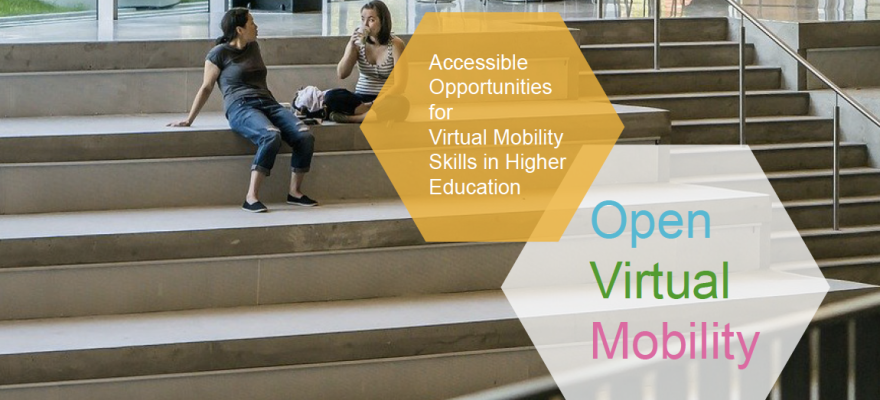I am happy to announce the Call for Chapter for the Springer Edited Volume on Wearable Enhanced Learning:
Perspectives on Wearable Enhanced Learning: Current Trends, Research and Practice
An edited volume by
Ilona Buchem
Ralf Klamma
Fridolin Wild
to be published by Springer, New York
Springer website: http://www.springer.com
Dedicated website: http://ea-tel.eu/special-interest-groups/well
EasyChair submission: https://easychair.org/conferences/?conf=wellspringer2018
Introduction
Wearable technologies – such as smart glasses, smart watches, smart objects, or smart garments – are potential game-changers, breaking ground, and offering new opportunities for learning. These devices are body-worn, equipped with sensors, and integrate ergonomically into everyday activities. With wearable technologies forging new human-computer relations, it is essential to look beyond the current perspective of how technologies may be used to enhance learning.
Scope
This edited volume “Perspectives on Wearable Enhanced Learning” aims to take a multidisciplinary view on wearable enhanced learning and provide a comprehensive overview of current trends, research, and practice in diverse learning contexts including school and work-based learning, higher education, professional development, vocational training, health and healthy aging programs, smart and open learning, and work. This volume will feature current state of the art in wearable enhanced learning and explore how wearable technologies begin to mark the transition from the desktop through the mobile to the age of wearable, ubiquitous technology-enhanced learning.
Contents
The edited volume is divided into seven parts:
Part I The Evolution and Ecology of Wearable Enhanced Learning
This part includes chapters describing an evolution of technology-enhanced learning from the desktop to wearable era, the different phases in the evolution of technologies for learning, introducing in the technological and conceptual shifts from e-learning through m-learning to ubiquitous learning. This part introduces the reader to the topic and provides both a historical perspective and a conceptual framework for a socio-cultural ecology of learning with wearables.
Part II The Topography of Wearable Enhanced Learning
This part includes chapters giving an overview of current trends and uses of wearable enhanced learning including examples of projects, use cases, case studies. This part provides an overview of real-life examples and aims at illustrating the breadth of uses of wearable technologies for learning in different application contexts such as education, work, health and open learning.
Part III Technological Frameworks, Development and Implementation
This part includes chapters providing insight into different technological aspects of wearable enhanced learning focusing both on the hardware and the software. This part also gives an overview of different development and implementation methodologies applied in wearable enhanced learning.
Part IV Pedagogical Frameworks and Didactic Considerations
This part includes chapters providing insight into different pedagogical frameworks and didactic/instructional design approaches applied in wearable enhanced learning. This part also discusses pedagogical affordances of wearables as technologies for learning and the consequences for a didactically sound design and integration of wearables in learning settings/environments.
Part V Design of User Experience
This part includes chapters providing insight into different aspects of user experience design including approaches for enhancing user engagement such as gamification and information visualisation as well as human-computer interaction and interface design. This part also discusses how current insights from research and development in wearable computing, which represents the forefront of HCI innovation, may be applied to designing user experience in learning settings.
Part VI Research and Data
This part includes chapters providing overview of current empirical research results in wearable enhanced learning touching upon the different dimensions of learning including cognitive, social and embodied dimensions. This part also discusses how data can be gathered and exploited in wearable enhanced learning which includes such topics as wearable learning analytics, turning data into information and data-driven approaches to enhancing learning in wearable enhanced learning.
Part VII Synopsis and Prognosis
The final part includes a chapter providing a synopsis and a prognosis for the future development in the field of wearable enhanced learning.
Call for Chapters
Prospective authors (co-authors are welcome) are invited to submit a chapter proposal (via EasyChair: https://easychair.org/conferences/?conf=wellspringer2018) in form of an abstract (max. 300 words) with the title, names of authors, five keywords and the part of the book for the contribution not later than 30 September 2017. The proposals for chapters should be a previously unpublished work.
Upon acceptance of the chapter proposal and notification of authors by 20 October 2017, the final chapter should be completed not later than 01 February 2018.
Contributions will be double blind reviewed and returned with comments by 31 March 2018. Finalised chapters are due no later than 30 April 2018. The final contributions should not exceed 20 manuscript pages. Guidelines for preparing your chapter will be sent to you upon acceptance of your proposal.
Proposed Timeline
The following represents a timeline for completing this volume:
- 20 June 2017: Call for Chapters open
- 30 September 2017: Abstracts due (title, authors, abstract, keywords & book part)
- 20 October 2017: Notification and additional information for authors and templates
- 01 February 2018: Chapters due (according to the template)
- 31 March 2018: Chapters returned with reviewers’ comments
- 30 April 2018: Final chapters due (ready for publication)
- 31 May 2018: Book manuscript delivered to Springer
Inquires and Submissions
Please forward your inquiries to:
The Editors: Ilona Buchem, Ralf Klamma and Fridolin Wild
E-mail: sig-well@dbis.rwth-aachen.de
Web: http://ea-tel.eu/special-interest-groups/well
Twitter: @mediendidaktik @klamma @fwild
Please submit your proposal to:
EasyChair: https://easychair.org/conferences/?conf=wellspringer2018









